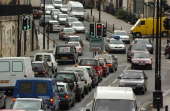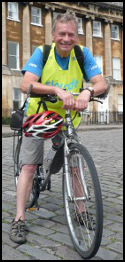Air Quality has once again hit the headlines recently, with concern across the world. The issue has been equated to the number of deaths caused by pollutants from diesel engines, giving an immediacy to the problem.
Diesel vehicles have in the past been recommended as less polluting vehicles, mainly because a gallon of diesel gives more mileage to the gallon than a gallon of petrol. However now they are considered to be much more polluting and dangerous to human health because of the damage done to lungs by “particulates’ – small molecules of carbon – PM10s and PM 2.5s.
These pollutants are of course, along with Nitrogen Dioxide(NO2), mostly found in cities and result from vehicle exhausts and can cause heart attacks and lung cancer. In 2013 a study involving 313,000 people from 9 European countries revealed that there was no safe level for particulates in humans. (Wikipedia). In many countries PM2.5s are not supposed to exceed the set limits at any time.
Politicians in polluted cities are scratching their heads about what to do to make air quality better. Copenhagen is beaten only by Zurich as the city in Europe with the best air quality. It is no secret that the use of bicycles has helped Copenhagen become one of the cleanest cities in Europe.

Hire bikes are successful in Bath.
This begs the question of why have other cities not replicated Copenhagen in its bike infrastructure? Cycling may not be the “silver bullet” for all cities, but there is no doubt that more cycling will improve air quality.
Making a city into one which encourages more cycling seems to be obvious and yet in so many cities, politicians wring their hands over poor air quality. It seems an insoluble problem. Why not make this obvious move towards better air quality? In the UK it appears that the car culture is so entrenched that this is almost untouchable.
In Bath just a couple of weeks ago TV magazine programme, “Inside-out West” did a test where a cyclist (Adam Reynolds, Chair of CycleBath) and a taxi driver were provided air monitors for a week to find out who breathed in most pollution. The taxi driver had by far the most polluted air, sucked in through vents when sat in traffic jams from other cars. Adam, despite his route being amongst heavy traffic had not been subjected to anything like the pollution of the taxi driver. There is little that can be done to reduce exposure of people in their cars until there is a reduction in vehicle emissions. Over the years engines have become cleaner, but the number of vehicles on our roads has increased, as have diesel vehicles. There are also more electric cars, but the growth in this type of vehicle has been slow. Getting more people out of their cars would make the occupants and the rest of us more healthy.
Drivers would not only no longer be cooped up in their tin boxes with concentrated pollution, but they would not be producing the pollution in the first place. Cyclists produce zero pollution.

The problem in Bath
If we take Bath as an example we can see some efforts to improve air quality by encouraging cycling. The building of a cycle track at Odd Down, the completion of off road routes, the Two Tunnels is the best example of this, the installation of the NextBike hire bike system, the Council’s electric bike loan initiative, hosting the Sky Ride, Pearl Assume bike racing, hosting the start and finish of a stage of the Tour of Britain and 20 mph speed limits have been set in all residential streets. All these initiatives are admirable and have encouraged people to get on their bikes.
Sadly though, making our roads safer and more receptive to people on bikes has been almost non-existent. All the initiatives to encourage people to ride will make little difference until it is safe to ride in segregated bike lanes on our roads. The guide here is making routes safe enough for children to use.
Too often politicians are happy to make space on pavements for people on foot and on bikes to share. This works in many places, but to really get more people and in particular children, using bikes everyday the roads need to be safer. At present parked cars take precedence over bike lanes, because space for parked cars could be where bike lanes are constructed. There is only one way to reduce pollution and that is reduce the number of cars on our roads.
In the Netherlands and in Denmark it has been normal to take road space away from cars to build cycle lanes. Politicians have been brave enough to do this, here in UK the car culture and car lobby frightens politicians into inaction.

 Hello, I'm Roger Symonds and I have created this blog to highlight local and wider cycling issues. Given the incredible interest and increase in cycling we must not miss this opportunity to provide the the infrastructure that gets even more people out on bikes in a safer environment.
Hello, I'm Roger Symonds and I have created this blog to highlight local and wider cycling issues. Given the incredible interest and increase in cycling we must not miss this opportunity to provide the the infrastructure that gets even more people out on bikes in a safer environment.